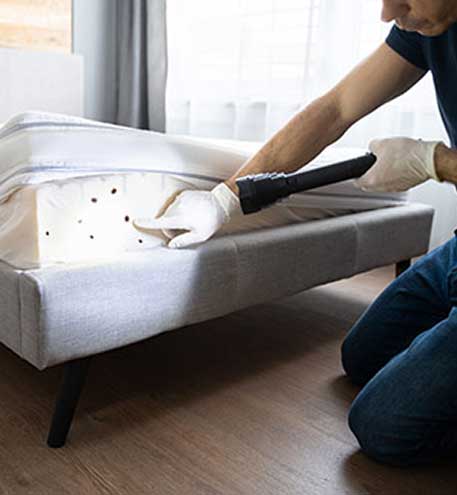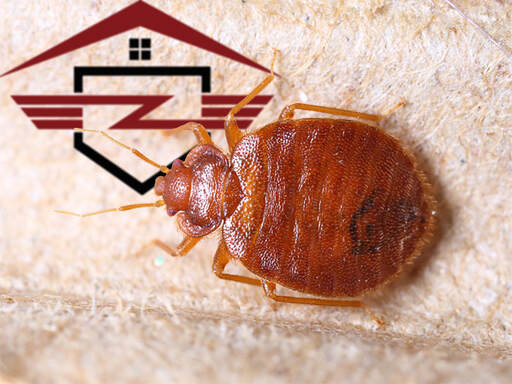Top Kings Cincinnati Bug Control Services: Pest Control Expert Experience
Top Kings Cincinnati Bug Control Services: Pest Control Expert Experience
Blog Article
A Failure of the Numerous Kinds of Parasite Control Solutions
In the world of insect control, a multitude of approaches exist to fight the presence and attend to of undesirable creatures. As we browse through the varied landscape of insect control remedies, comprehending the intricacies of each technique becomes vital in determining the most efficient course of activity.
Chemical Pesticides
Chemical chemicals are typically made use of in insect control to properly eliminate a wide variety of bugs and various other insects. These chemicals function by targeting the nerve system of the bugs, disrupting their typical features, and inevitably resulting in their death. Using chemical pesticides has been a staple in the bug control market for decades because of their performance and quick results.

However, it is important to make use of chemical pesticides with care due to their possible dangerous impacts on the environment and non-target varieties. Incorrect application or overuse of these pesticides can bring about contamination, harm to beneficial pests, and resistance advancement in pest populaces. For that reason, it is crucial to adhere to security standards and policies when using chemical pesticides for bug control.
Biological Control Methods
Taking into consideration the possible environmental effects and threats connected with chemical pesticides, biological control techniques use an even more lasting approach to handling bug populaces. Organic control entails using natural opponents, such as parasites, predators, and pathogens, to suppress insect populations. This technique is typically a lot more targeted, impacting just the certain bug varieties while decreasing injury to valuable pests, human beings, and the setting.

One advantage of organic control is its long-term performance. When established, all-natural enemies can assist regulate pest populations continually without the need for duplicated applications of chemicals. Additionally, organic control is frequently a lot more cost-effective and can assist reduce pesticide resistance in bug populations in time. On the whole, biological control techniques supply a environmentally friendly and lasting remedy to pest management.

Mechanical Pest Control
Mechanical insect control involves the physical manipulation or elimination of parasites to handle their populations efficiently. This method is often used combined with other insect control strategies for comprehensive parasite administration. One typical example of mechanical parasite control is utilizing traps to record insects or rats. These traps can be set up in critical places where pests are known to dwell, assisting to minimize their numbers.
One more mechanical approach is using barriers such as nets, fencings, or displays to obstruct insects from entering certain areas. By physically preventing bugs from accessing an area, the probability of infestations or damage can be significantly minimized. In addition, manual approaches like handpicking pests off plants or structures can be effective for smaller-scale invasions.
While mechanical parasite control methods can be labor-intensive, they provide a non-chemical choice that can be eco-friendly and lasting. By targeting bugs straight, mechanical control techniques can help maintain parasite populaces in check without depending on pesticides.
All-natural Solutions
Utilizing all-natural solutions for bug control uses a sustainable and eco-friendly strategy to taking care of insect populations without resorting to chemical treatments. All-natural treatments involve making use of compounds derived from plants, minerals, or various other normally occurring resources to prevent or get rid of pests.
In addition, necessary oils such as tea tree oil or neem oil have insecticidal residential properties that can successfully control parasites while being risk-free for the environment. One more natural solution is introducing beneficial bugs like ladybugs or praying mantises to your yard to take advantage of harmful bugs. By incorporating these all-natural services right into insect monitoring techniques, people can decrease their dependence on synthetic chemicals and advertise a healthier, a lot more balanced environment.
Integrated Pest Administration
Integrated Parasite Administration (IPM) is a thorough method that incorporates various methods to effectively manage pest populaces while minimizing dangers to human wellness and the environment. IPM involves the combination of numerous pest control techniques such as organic control, environment manipulation, adjustment of social techniques, and more tips here using resistant plant selections. By making use of a combination of these methods, IPM aims to lower reliance on chemical pesticides, which can have unfavorable influences on environments and human health.
One secret element of IPM is the focus on avoidance. By implementing steps to avoid bug problems prior to they take place, such as maintaining proper sanitation and sealing entry points, the requirement for reactive insect control procedures is lessened. Surveillance and normal examinations play a crucial role in IPM, permitting early detection of pest concerns and punctual treatment.
Verdict
In verdict, the numerous kinds of bug control options use a series of options for efficiently managing pest problems. Chemical chemicals supply quick removal but may have ecological dangers. Biological control methods make use of all-natural predators to control pests. Mechanical parasite control includes physical barriers or traps. All-natural treatments provide safe choices. Integrated Insect Management incorporates several techniques for a holistic strategy to pest control. garden pests Each technique has its own advantages and disadvantages, and choosing one of the most suitable solution relies on the particular pest issue at hand.
Chemical pesticides are generally utilized in parasite control to efficiently remove a broad array of insects and other parasites.Mechanical pest control includes the physical adjustment or removal of bugs to handle next page their populations efficiently (Kings cincinnati pest control).Using all-natural solutions for parasite control uses a eco-friendly and sustainable approach to managing insect populations without resorting to chemical treatments.Integrated Bug Monitoring (IPM) is a comprehensive approach that integrates different methods to successfully regulate pest populaces while decreasing threats to human wellness and the environment.In conclusion, the various types of pest control solutions offer a range of options for efficiently managing pest infestations
Report this page